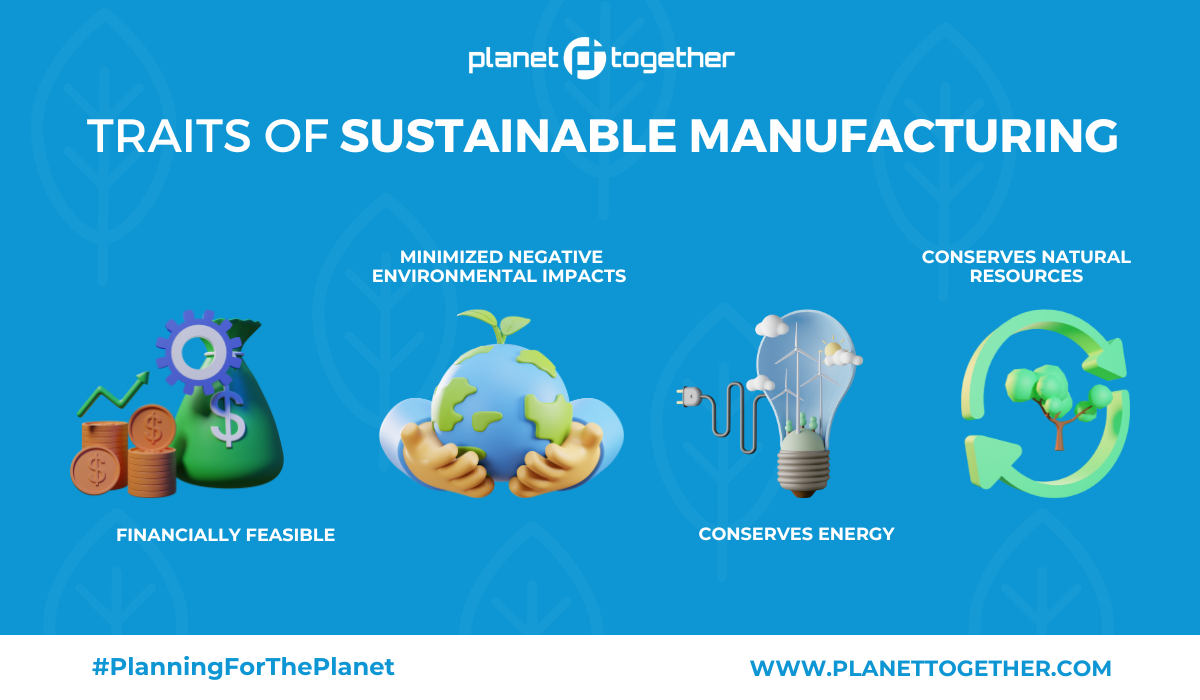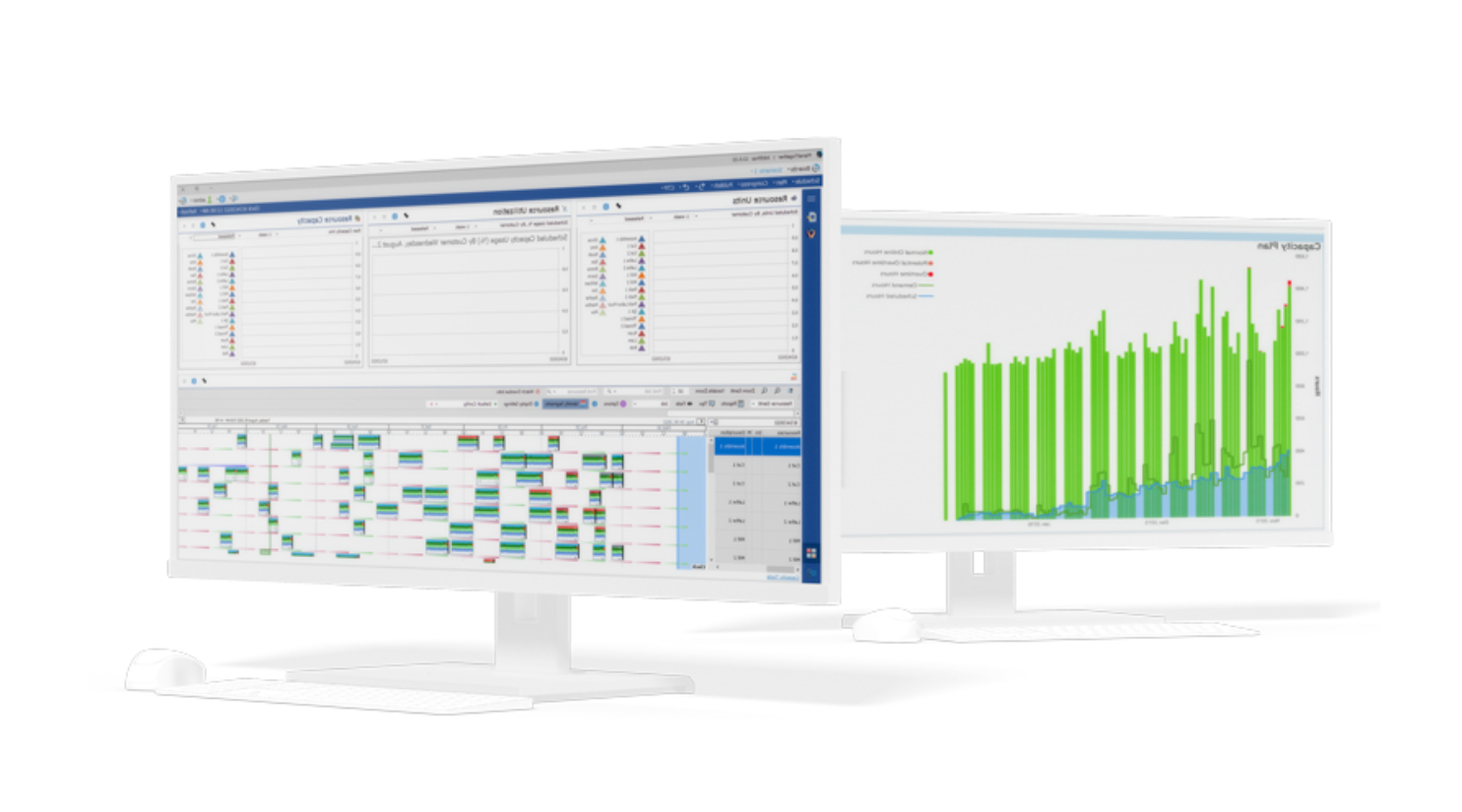In the industrial manufacturing, the role of a Supply Chain Manager has transcended beyond mere logistics and operations management. Today, it encompasses a broader responsibility: ensuring sustainability throughout the entire supply chain. As global concerns over environmental impact, resource depletion, and social responsibility continue to escalate, the need for sustainable supply chain planning has become paramount.
In this blog, we look into the significance of sustainable supply chain planning in industrial manufacturing, exploring its challenges, opportunities, and the pivotal role of integrated planning solutions like PlanetTogether alongside leading ERP, SCM, and MES systems such as SAP, Oracle, Microsoft, Kinaxis, and Aveva.

Understanding Sustainable Supply Chain Planning
Sustainable supply chain planning involves the integration of environmental, social, and economic considerations into every facet of the supply chain, from sourcing raw materials to delivering finished products to customers. It aims to minimize negative environmental impacts, promote ethical practices, and ensure long-term viability while optimizing operational efficiency and profitability.
Challenges in Sustainable Supply Chain Planning
Transparency and Traceability:
Achieving end-to-end visibility and traceability across complex supply chains is a daunting task. Without accurate data on suppliers, materials, and processes, it's challenging to assess environmental and social impacts effectively.
Resource Optimization:
Balancing the conflicting goals of cost reduction and resource conservation requires sophisticated planning algorithms and optimization techniques. Traditional planning methods often prioritize cost and efficiency over sustainability.
Regulatory Compliance:
Adhering to an ever-expanding web of environmental regulations and standards adds another layer of complexity to supply chain planning. Non-compliance can result in legal ramifications, reputational damage, and financial penalties.
Collaboration and Stakeholder Engagement:
Building sustainable supply chains necessitates collaboration among diverse stakeholders, including suppliers, manufacturers, distributors, and customers. Aligning disparate interests and fostering cooperation is a formidable challenge.

Integration of PlanetTogether with ERP, SCM, and MES Systems
To tackle these challenges and drive sustainable supply chain planning initiatives, integration between advanced planning tools like PlanetTogether and leading ERP, SCM, and MES systems is indispensable. Let's explore how this integration enhances sustainability across the supply chain:
Real-Time Data Integration:
Seamless integration between PlanetTogether and ERP systems such as SAP, Oracle, or Microsoft enables the exchange of real-time data on inventory levels, production schedules, and customer orders. This facilitates accurate demand forecasting and resource planning, minimizing waste and excess inventory.
Optimization Across Multiple Dimensions:
By integrating with SCM systems like Kinaxis, PlanetTogether can optimize supply chain operations across multiple dimensions, including cost, lead time, and environmental impact. Advanced algorithms consider factors such as transportation emissions, energy consumption, and carbon footprint in decision-making processes.
MES Integration for Operational Excellence:
Integrating PlanetTogether with MES systems like Aveva enhances operational excellence by synchronizing production schedules with shop floor activities in real-time. This ensures optimal resource utilization, reduced downtime, and improved overall equipment effectiveness (OEE), contributing to sustainability goals.
Scenario Planning for Risk Mitigation:
Integrated planning solutions empower Supply Chain Managers to conduct scenario analysis and simulate the potential impacts of disruptions, such as natural disasters or supplier failures, on the supply chain. By identifying vulnerabilities and developing contingency plans, organizations can enhance resilience and minimize environmental and social risks.
In the pursuit of sustainable supply chain planning, industrial manufacturing companies face a myriad of challenges, ranging from transparency and resource optimization to regulatory compliance and stakeholder engagement. However, by leveraging integrated planning solutions like PlanetTogether alongside leading ERP, SCM, and MES systems, Supply Chain Managers can navigate these challenges effectively while driving positive environmental and social outcomes.
By embracing sustainable supply chain planning practices, organizations can not only mitigate risks and enhance operational efficiency but also contribute to a more resilient, equitable, and environmentally responsible future for generations to come.






















LEAVE A COMMENT